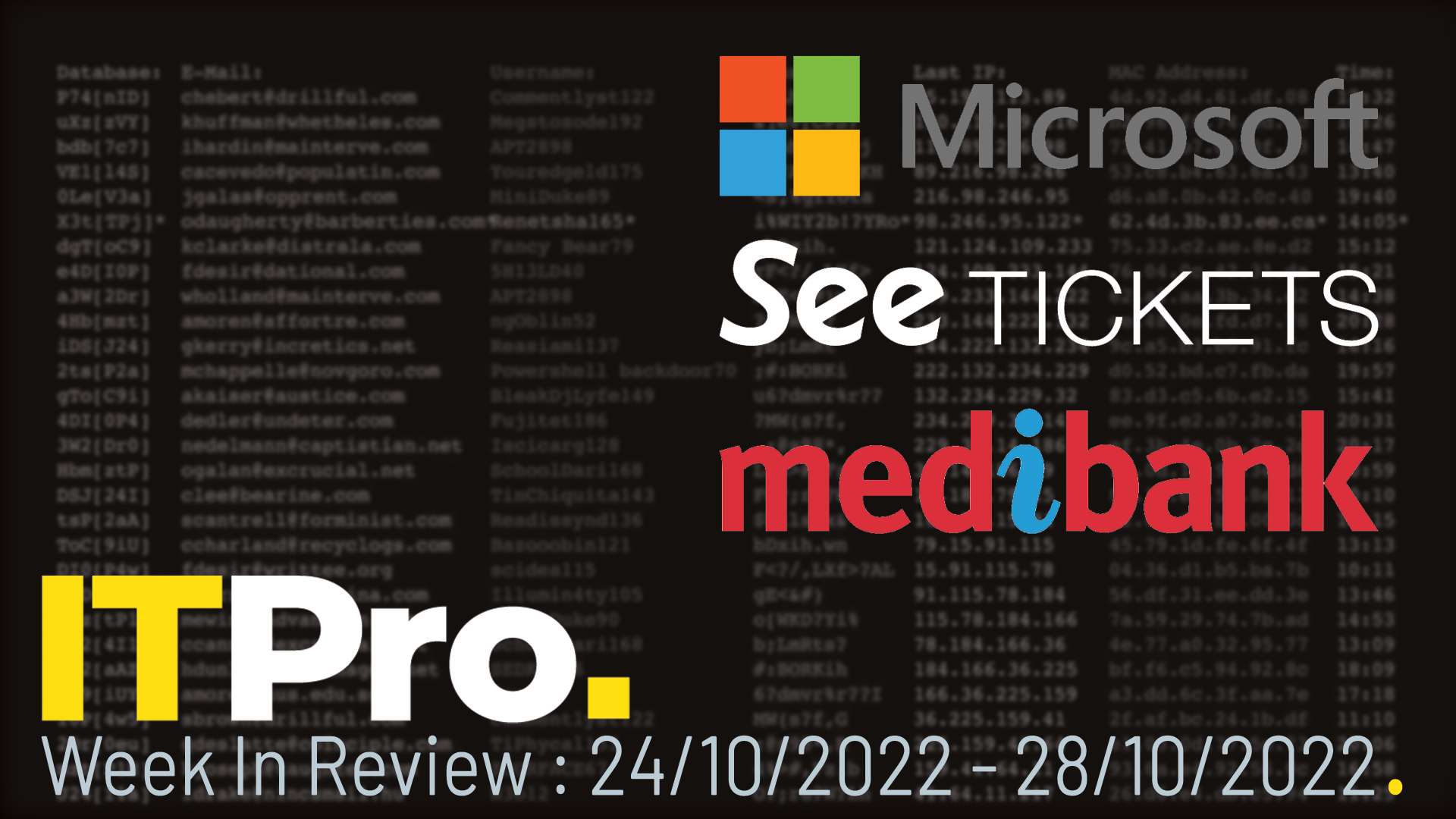Microsoft to give EU business customers greater control over data storage
Engineering work is underway to make sure that by 2022, no data is routed outside of the EU


Microsoft will allow its customers based in the European Union (EU) to store and process their data only within the confines of the EU, rather than routing this to other countries such as the United States.
The plan, dubbed EU Data Boundary for the Microsoft Cloud, will see EU-based public and private sector cloud customers given the option to choose to store and process their data in the EU alone.
Engineering work is now underway, with this commitment applying across the breadth of its cloud services, including Azure, Microsoft 365, and Dynamics 365. The plan is expected to be ready by the end of 2022.
“The new step we’re taking builds on our already strong portfolio of solutions and commitments that protect our customers’ data, and we hope today’s update is another step toward responding to customers that want even greater data residency commitments,” said Microsoft president Brad Smith.
“We will continue to consult with customers and regulators about this plan in the coming months, including adjustments that are needed in unique circumstances like cybersecurity, and we will move forward in a way that is responsive to their feedback.”
The data in question includes any personal data in diagnostics and service-generated data, as well as personal data that Microsoft uses to provide technical support. The company will also extend technical controls such as Lockbox and customer-managed encryption for data across its services.
Microsoft already provides customers with the choice to have some data stored in the EU, while many Azure cloud services can be configured to process data in the EU as well. The company, however, still needs to make some transfers to territories outside of the EU due to shortcomings in its data centre infrastructure.
Get the ITPro daily newsletter
Sign up today and you will receive a free copy of our Future Focus 2025 report - the leading guidance on AI, cybersecurity and other IT challenges as per 700+ senior executives
The EU Data Boundary project aims to minimise these additional transfers, which involves Microsoft making “substantial and ongoing investments” in expanding its data centre infrastructure. Microsoft currently operates data centres in 13 European countries.
Data residency has been a growing worry for the EU in recent years, as well as privacy activists concerned that data processed in other territories might be accessed by the surveillance regimes in those countries.
Privacy Shield, for example, was invalidated in July 2020 after the European Court of Justice (ECJ) declared it was unable to protect EU residents' data from US surveillance mechanisms.
This mechanism was meant to guarantee that EU-based entities transferring data to the US were able to protect that data with EU-level data protection standards. The ECJ, however, ruled that Privacy Shield prioritised the interests of law enforcement and national security agencies.
By allowing EU customers to process all their data only within the EU, the jurisdiction of countries such as the US or others will be severely restricted, and the legal basis for requesting data will be limited.
In an FAQs post, Microsoft stressed that all government requests for data, from US authorities, for example, will be directed to customers, while the company will challenge every request where there’s a lawful basis to do so.
As for whether any personal data might be transferred outside the EU after 2022, Microsoft simply reiterated that it’s identified the technical and operational investments necessary to meet its commitment.
No exceptions to this were provided, although the company plans to consult with customers and regulators about its plans in the coming months.
Although the EU's GAIA-X unified cloud system hasn't yet been finalised, Microsoft also believes these plans are complementary to the initiative.

Keumars Afifi-Sabet is a writer and editor that specialises in public sector, cyber security, and cloud computing. He first joined ITPro as a staff writer in April 2018 and eventually became its Features Editor. Although a regular contributor to other tech sites in the past, these days you will find Keumars on LiveScience, where he runs its Technology section.
-
 Bigger salaries, more burnout: Is the CISO role in crisis?
Bigger salaries, more burnout: Is the CISO role in crisis?In-depth CISOs are more stressed than ever before – but why is this and what can be done?
By Kate O'Flaherty Published
-
 Cheap cyber crime kits can be bought on the dark web for less than $25
Cheap cyber crime kits can be bought on the dark web for less than $25News Research from NordVPN shows phishing kits are now widely available on the dark web and via messaging apps like Telegram, and are often selling for less than $25.
By Emma Woollacott Published
-
 Microsoft under fire for “negligent” security practices in scathing critique by industry exec
Microsoft under fire for “negligent” security practices in scathing critique by industry execNews Microsoft took more than 90 days to issue a partial fix for a critical Azure vulnerability, researchers found
By Ross Kelly Published
-
 Anonymous Sudan: Who are the hackers behind Microsoft’s cloud outages?
Anonymous Sudan: Who are the hackers behind Microsoft’s cloud outages?News The highly aggressive ‘hacktivist’ group is thought to have links to the pro-Russian Killnet hacker collective
By Ross Kelly Published
-
 Azure AD vulnerability gave attackers backdoor authentication control
Azure AD vulnerability gave attackers backdoor authentication controlNews Secureworks shared its findings with Microsoft in 2022, and the company has since issued changes to improve audit logs
By Ross Kelly Published
-
 IT Pro News: Medibank cyber attack, Microsoft record cloud revenue, See Tickets data breach
IT Pro News: Medibank cyber attack, Microsoft record cloud revenue, See Tickets data breachVideo Catch up on the biggest headlines of the week in just two minutes
By IT Pro Published
-
 Thousands of Microsoft customer records found on a public server
Thousands of Microsoft customer records found on a public serverNews The tech giant claims security researchers have greatly exaggerated the scope of the issue
By Zach Marzouk Published
-
 SolarWinds hackers strike again with a new “MagicWeb” authentication exploit
SolarWinds hackers strike again with a new “MagicWeb” authentication exploitNews Microsoft warns MagicWeb can abuse admin credentials to hijack AD FS enterprise identity system
By Praharsha Anand Published
-
 Dell Technologies World 2022: Dell unveils security offerings for major cloud providers
Dell Technologies World 2022: Dell unveils security offerings for major cloud providersNews The tech giant also added Cyber Recovery Services to its existing Apex portfolio and announced a multi-cloud collaboration with Snowflake Data Cloud
By Sabina Weston Published
-
 Microsoft mitigated 'largest ever' 2.4Tbps DDoS attack
Microsoft mitigated 'largest ever' 2.4Tbps DDoS attackNews The record-breaking attack targeted one of the company's European Azure customers in August
By Zach Marzouk Published